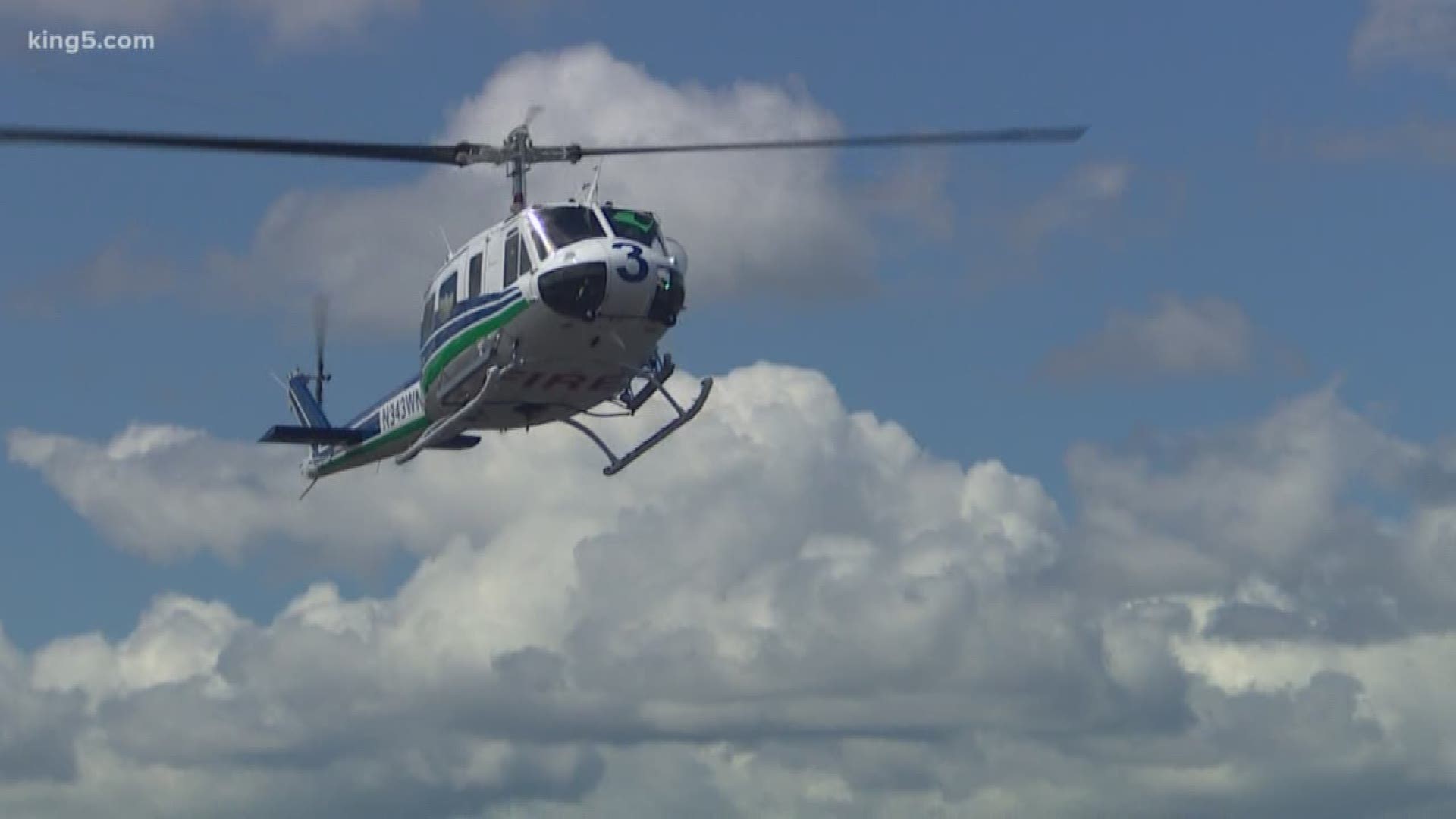OLYMPIA, Wash. — Western Washington has a new tool to battle the growing number of fires happening where the city meets the forest. A wildfire-fighting helicopter will join the arsenal this season.
The problem area is called the urban-wildland interface. Concern is mounting over wildfire moving into urban areas, which are more populated and typically on the wetter side. Urban residents may not think wildfires can spread there. But they can.
This past March, 50 of the 54 fires fought by the Department of Natural Resources were west of the Cascade mountains.
Now the National Interagency Fire Center in Boise warns of another busy fire season ahead for Western Washington. Even though it's still May, temperatures around Puget Sound are expected to reach 80 degrees next week, with drier than normal conditions.
Washington state is collecting new tools to fight wildfires, especially from the air.
The use of belly tanks, which are planned for two additional aircraft, are considered a better option over more populated areas. Currently, the state's fleet of nine helicopters use long cables attached to buckets at the end to drop water on fires. The long cables are needed in the forest to reach ponds and other water sources where there's not enough clearance for the rotor blades to get low.
But Dave Ritchie, DNR's chief pilot and manager of the helicopter fleet, said long cables and buckets are consider a potential hazard in populated areas because they can be jettisoned by the pilot and could inadvertently drop off.
Ritchie said when buckets are used, roads often have to be closed between the fire and water source. The hard-mounted belly tank doesn't require such precautions, he said.
The belly tank can also hold more water: 323 gallons vs. just 240 in the buckets. Plus, the belly tank can mix foam and chemicals into the water to help stop advancing flames.
But the belly tank also requires the helicopter to get lower, requiring a wider body of water for fill-up. A powerful pump at the end of the hose can refill the tank in about 30 seconds.

